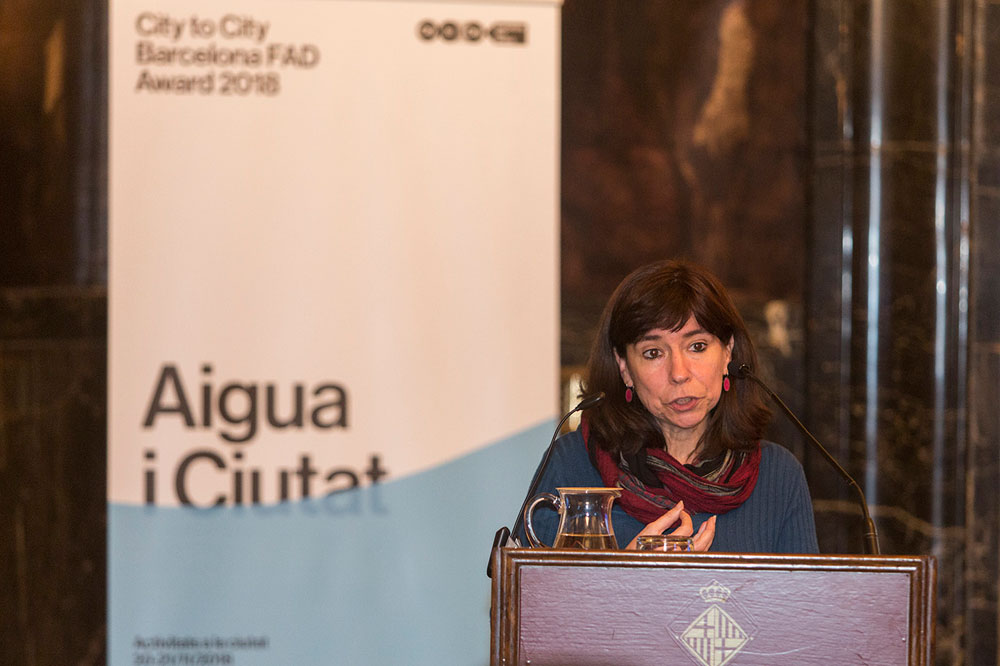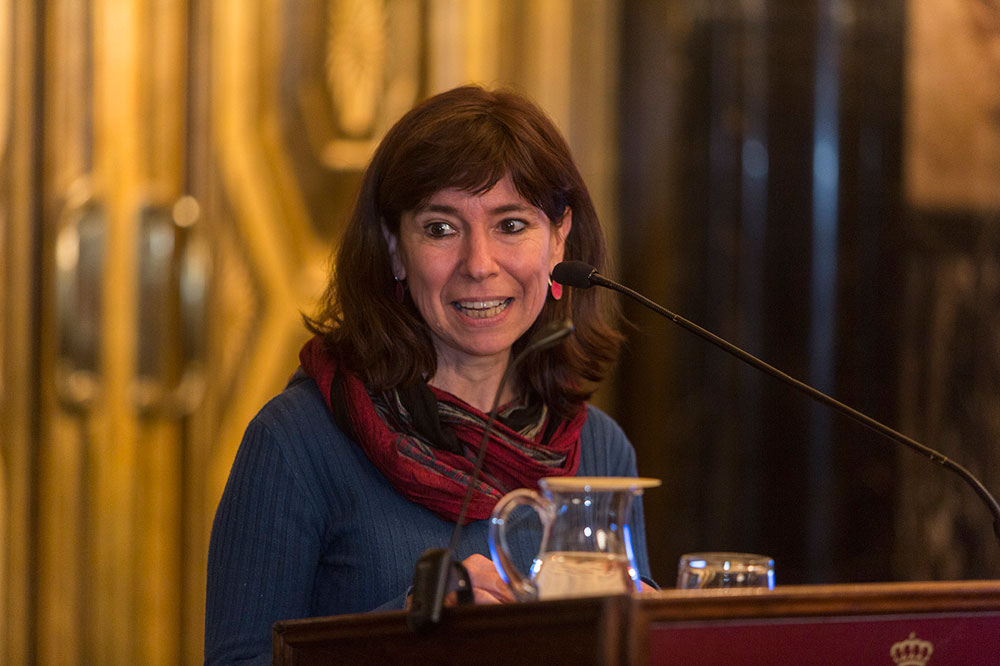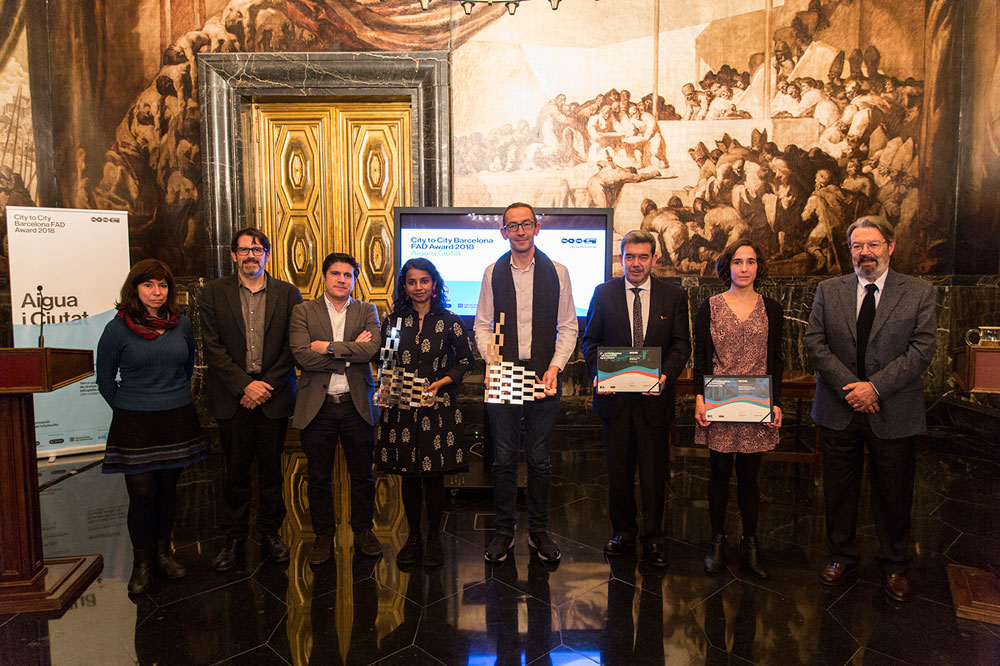“We are responsible for a war against life”
ho
Yayo Herrero urges us to remember our intimate link with water during the City to City Barcelona FAD Award 2018 ceremony.

In 2008, FAD launched the City to City Barcelona FAD Award, a platform to connect cities, projects and people through the search for innovative solutions for the effective improvement of the living conditions of citizens around the world. This edition, focused on reviewing the role of water in the life of cities, has awarded two initiatives: Eau de Paris, the municipal operator of water management in Paris; and Blue Communities, an organization that emerged from the Council of Canadians, whose mission is to invite cities to defend common goods through the adoption of local policies that recognize water and sanitation as human rights.
What do these two initiatives have in common? As the anthropologist, engineer, teacher and ecofeminist activist Yayo Herrero explained in the inaugural speech of the award, both organizations conceive water as a common good that suffers a serious threat and urge us to establish a new relationship with it based on this close tie that unites us.
In this article, we highlight the key aspects of this necessary reconceptualization of water. One that, as Herrero defends, we should adopt in a generalized way to ensure not only our life but the life of the planet in we live in and we are intimately linked to. Keeping this link in mind is understanding that if we fail to preserve our planet, we are putting ourselves in danger.

The human being is part of the natural environment, not as an independent entity but as another element of it. Therefore, we should establish with it a relationship of equity, cooperation, community and interdependence instead of one of domination. This interdependence shows that it is not possible to conceive an economy, politics, culture or technology separately from nature. Nevertheless, the hegemonic economy, politics, culture and technology have been built with their backs turned on nature. We have built a wall between the human being and the rest of the living world and only now we begin to notice the consequences of this ontological abyss.
The human body contains 65% water, and without this good, produced by natural cycles, human life is simply not possible. If economy, politics and technology leave aside the ecological considerations of their dynamics, these natural cycles are severely affected and may become unable to regenerate properly enough to supply an excessive and harmful use.
Examples of this excessive and harmful use are certain models of production of food or other goods that are too demanding with water, the dumping of toxic waste in the seas, the high carbon dioxide emissions that heat the planet and condemn it to great droughts and, in general, the perpetuation of practices that endanger or ignore the natural water cycle. These dynamics depart from a conception of water as an inexhaustible resource and do not prioritize its preservation, but rather the maximization of the economic resources that derive from its exploitation.
The result of this myopia is simply a time bomb. According to Yayo Herrero, we live in a provocative way and the civilization we have built is evolving against the maintenance of our own life: we are responsible for a war against life where nature and our bodies are the battlefield. A war for the hoarding of resources, against the social and collective rights to which water belongs and ultimately against ourselves.

The good news is that the possibility of reversing this situation leading us to the apocalypse is in our hands: we can make peace with nature, we can redefine the current conception of politics, economy, technology, etc., taking into account this missing link that we have overlooked for too long. Herrero identifies four keys to address this challenge:
1. Get involved in the creation of better policies and dynamics of water organization and management as an indispensable human right: this implies retaking control of water management through remunicipalization and public control processes that take into account citizenship and social movements.
2. Rethink the concept of security and its importance: security is the possibility for people to stop living precarious lives and facing an uncertain future. To live safe lives it is essential to find new ways of sourcing water without compromising nature.
3. Regenerate the natural and urban space: humans are living beings in need of a natural environment but urban space has overtaken the natural space. We must reintegrate nature in cities.
4. Articulate new ways of producing food that do not poison the earth or people, that respect the life of animals and that do not require huge amounts of water.